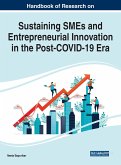Digitalization is the promise for increased competitiveadvantage and represents a paradigm shift for conventional business strategies (Benner & Tushman, 2015; Del Vecchio et al., 2018; Parviainenet al., 2017; Saldanha et al., 2017; Sommer, 2015; Staab & Predige,r 2019; von Wascinski et al., 2018). Research shows that digital technologies are reshaping theway large, aswell assmall and medium enterprises (SMEs) operate (Ganglet al., 2020; Lindner et al., 2017; Nambisan et al., 2017; Onday, 2018; Slusarczyk, 2018; Staab & Predige,r 2019; Trantopouloset al., 2017). With the increased adoption of technologies around theworld and in Germany, fmns arenow entering a new eraof digital innovation (Ballweget al., 2020; Huang et al., 2017; Lindner et al., 2017; Nambisan et al., 2017). The speed of change also poses current challenge,swhere firms lack theknowledge for the experimentation and executionof digital technologies, and consequently miss outon the full oppommities of digitalization.Therefore, researchers point out theneed tobetter examine the relationhsipof digitalization and financial benefits for SME in Germany (Benner & Tushman, 2015; Del Vecchio et al., 2018;
Hinweis: Dieser Artikel kann nur an eine deutsche Lieferadresse ausgeliefert werden.
Hinweis: Dieser Artikel kann nur an eine deutsche Lieferadresse ausgeliefert werden.








